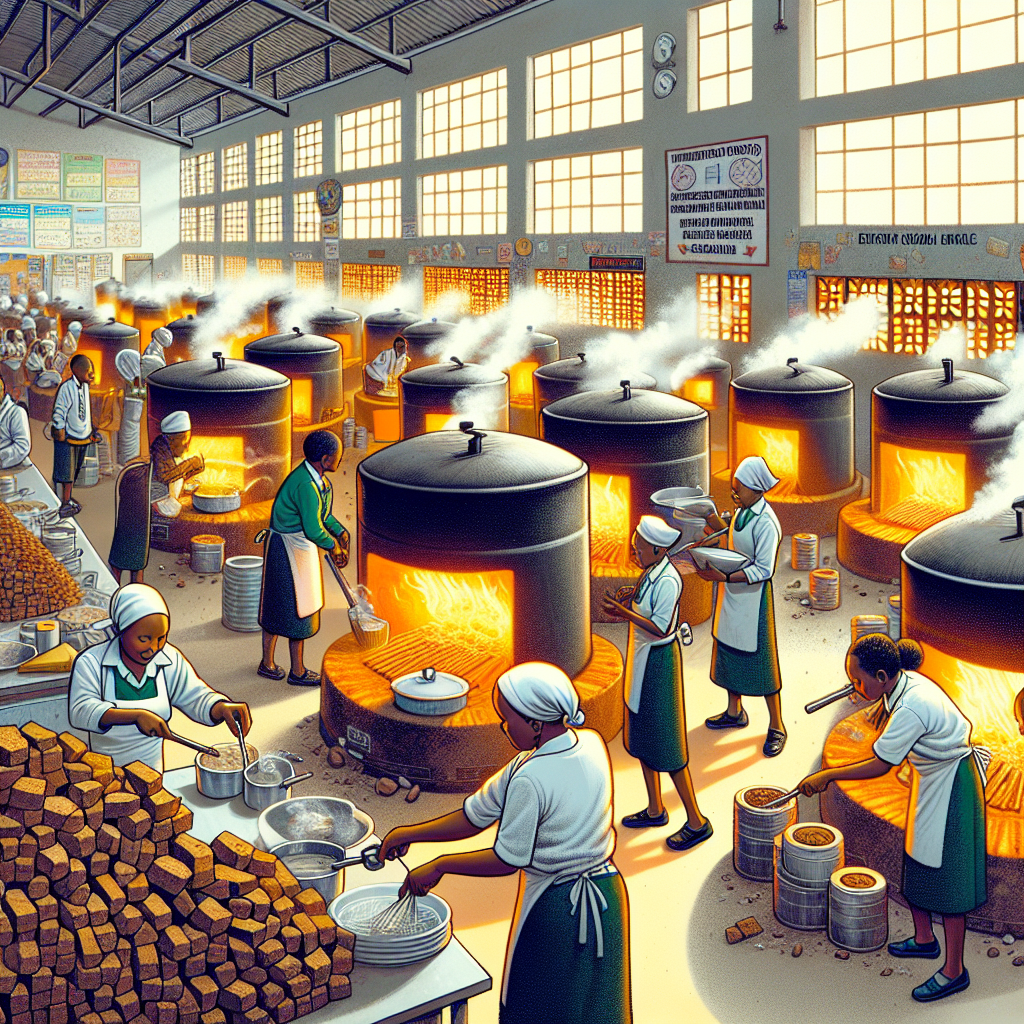Briquettes for school Boilers: a sustainable solution for efficient boiler systems. Discover why embracing this eco-friendly choice not only reduces the environmental impact but also empowers communities and fosters sustainable development
In the quest for a sustainable and environmentally mindful future, schools play a pivotal role as stewards of knowledge and leaders in responsible practices. As institutions strive to reduce their environmental footprint, one area deserving of keen attention is the choice of fuel for their boilers. We delve into the compelling reasons why schools should consider making a significant shift towards using biomass briquettes—a renewable and environmentally friendly alternative that not only aligns with the principles of sustainability but also brings forth a host of practical advantages for educational institutions.

Schools should strongly consider briquettes as a source of fuel for boilers due to a range of compelling reasons that align with both environmental sustainability and practical efficiency. Here are some key considerations:
Environmental Sustainability:
- Renewable Resource: Briquettes are typically made from biomass, which is a renewable resource. Unlike fossil fuels, biomass can be sustainably sourced, helping schools reduce their carbon footprint and contribute to environmental conservation.
- Carbon Neutrality: When burning briquettes, the carbon dioxide released is part of the natural carbon cycle. This makes the process essentially carbon neutral, as the carbon emitted during combustion is offset by the carbon absorbed by the plants during their growth.
Cost-Effectiveness:
- Affordability: Biomass briquettes are often more affordable than traditional fossil fuels. The raw materials, such as agricultural residues or wood waste, are frequently available at low or no cost, providing a cost-effective solution for schools operating within budget constraints.
- Local Availability: Sourcing biomass locally reduces transportation costs, making briquettes a cost-effective and sustainable choice for schools, particularly those situated in rural or remote areas. Buy Briquettes now from IkoBriq, the leading producer of sawdust briquettes in Nairobi Kenya.
Efficiency and Performance:
- Consistent Heat Output: Briquettes are designed to burn consistently and efficiently. Their uniform shape and density ensure a steady release of heat, leading to optimal combustion in boilers. This efficiency can result in improved heating capabilities and reduced maintenance requirements.
- Cleaner Combustion: Biomass briquettes generally produce fewer pollutants compared to traditional fossil fuels, contributing to better air quality within and around the school premises.
Community Engagement:
- Supporting Local Economy: The production and use of briquettes can stimulate local economies by creating opportunities for small businesses involved in their production and distribution. This aligns with community engagement and sustainable development goals.
- Educational Opportunities: Adopting biomass briquettes provides schools with the opportunity to educate students about sustainable energy practices, environmental conservation, and the importance of using resources wisely.
Reduced Dependency on Non-Renewable Resources:
- Diversification of Energy Sources: Using biomass briquettes helps schools diversify their energy sources, reducing dependence on non-renewable fossil fuels. This diversification enhances energy security and resilience, especially in the face of potential fluctuations in fuel prices.
Compliance with Environmental Regulations:
- Environmental Standards: Many regions have environmental regulations in place that encourage or mandate the use of cleaner, more sustainable energy sources. By choosing briquettes, schools can ensure compliance with these standards and contribute to a healthier environment.
In conclusion, the adoption of briquettes as a fuel source for boilers in schools offers a myriad of benefits, ranging from environmental sustainability and cost-effectiveness to community engagement and compliance with regulations. This makes it a wise and responsible choice for educational institutions seeking to align their operations with principles of sustainability and resilience.
